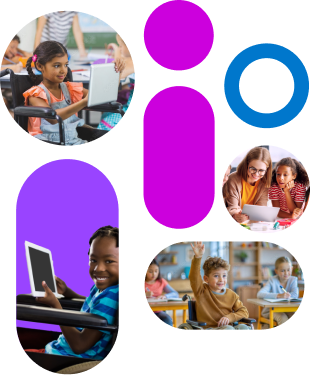Making Higher Education Materials Accessible
Multi-institutional project to multiply impact of accessibility efforts receives grant from The Andrew W. Mellon Foundation
We are thrilled to share that we are continuing to collaborate with universities from across the United States to deliver accessible materials to students with disabilities in a timely manner. Read the announcement below from the University of Virginia to learn more about the next steps for this project.
“Federated Repositories of Accessible Materials for Higher Education II” awarded a $1,175,000 grant from The Andrew W. Mellon Foundation
By law, any material required for the education of a disabled student must be made accessible for them in a timely manner. In the United States, the legal obligation to provide accessible learning materials falls on individual educational institutions, and universities and colleges across the country are scrambling to meet their responsibilities to students with special information-access needs. The staff of disability services offices (DSOs) spend a great deal of time and effort remediating printed texts, transforming them into a variety of electronic formats to improve access for students with print disabilities. Because many of the same texts are commonly assigned at multiple institutions, the result is a wasteful duplication of effort as the DSO staff at each independent university must start the remediation work over again.
For the last two years, the University of Virginia Library has led a multi-institutional project to address this problem. With a two-year grant from The Andrew W. Mellon Foundation, University Librarian John Unsworth initiated an effort to create a web-based infrastructure allowing DSOs to share remediated texts, in order to reduce their nationwide duplication of effort, and thereby make it possible for the staff in these offices to achieve better outcomes for students in higher education.
That collective effort, known as “FRAME,” will now continue for another two years and expand to include new partners, thanks to a grant of $1,175,000 from The Mellon Foundation for a second phase dubbed “Federated Repositories of Accessible Materials for Higher Education II.” Representatives of the DSO and library staff at Ohio State University will join their counterparts from George Mason University, Northern Arizona University, Texas A&M University, the University of Illinois at Urbana-Champaign, the University of Wisconsin, Vanderbilt University, and the University of Virginia, along with a development and project management team based at the UVA Library. Much of the group’s work will concentrate on expanding and improving EMMA (Educational Materials Made Accessible), a membership-based secure repository for remediated texts, and developing workflows wherein librarians and DSO staff will cooperate in uploading texts to the repository.
“For too long, most academic libraries have left accessibility to their colleagues in disability services, even though it is all about providing information resources for teaching and research. The FRAME project seeks to establish a partnership between libraries and disability service offices, to ensure that remediated content is preserved, organized, and made discoverable for re-use, reducing the duplication of staff effort in order to improve service to students (and faculty) with disabilities,” states Unsworth, who is continuing his role as principal investigator from the first FRAME grant.
Also continuing to support the project will be three major digital repositories: Bookshare, HathiTrust, and the Internet Archive. Through a federated search interface, these repositories provide EMMA users with texts that have already been remediated for users with print disabilities or that are machine-readable and suitable for further remediation by DSO staff — a big advantage over having to scan a printed book. Benetech, the parent company of Bookshare, supplied much of the search infrastructure for EMMA in the first phase of the FRAME project and has committed in the second phase to sharing certain cutting-edge technologies to automate parts of the labor-intensive remediation process. In the second year of FRAME II, an additional repository will join the collaboration: the Accessible Content e-Portal sponsored by the Ontario Council of University Libraries.
Another important element of the project is the cooperation of the university presses affiliated with six of the participating universities: George Mason, Illinois, Ohio State, Vanderbilt, Virginia, and Wisconsin. As publishers of texts that might be used in higher education, the presses have all committed to contributing machine-readable versions of their publications to EMMA or one of its federated repositories.
John Unsworth is joined by FRAME II co-principal investigator J. Stephen Downie, Associate Dean for Research at the University of Illinois School of Information Sciences. Professor Downie will lead a new educational initiative, developing curricular materials for professional education in library schools. The materials created by Downie and a team of expert collaborators will train library and information professionals in the information needs of students, faculty, and other library users with disabilities. Professor Downie states, “It is truly inspiring to be working with all the project partners at Illinois, Virginia and beyond to realize the promise of the FRAME II vision.”
Learn more about the first phase of this project: When Universities Collaborate, Students Win! EMMA Consortium Empowers Students to Read Their Way
